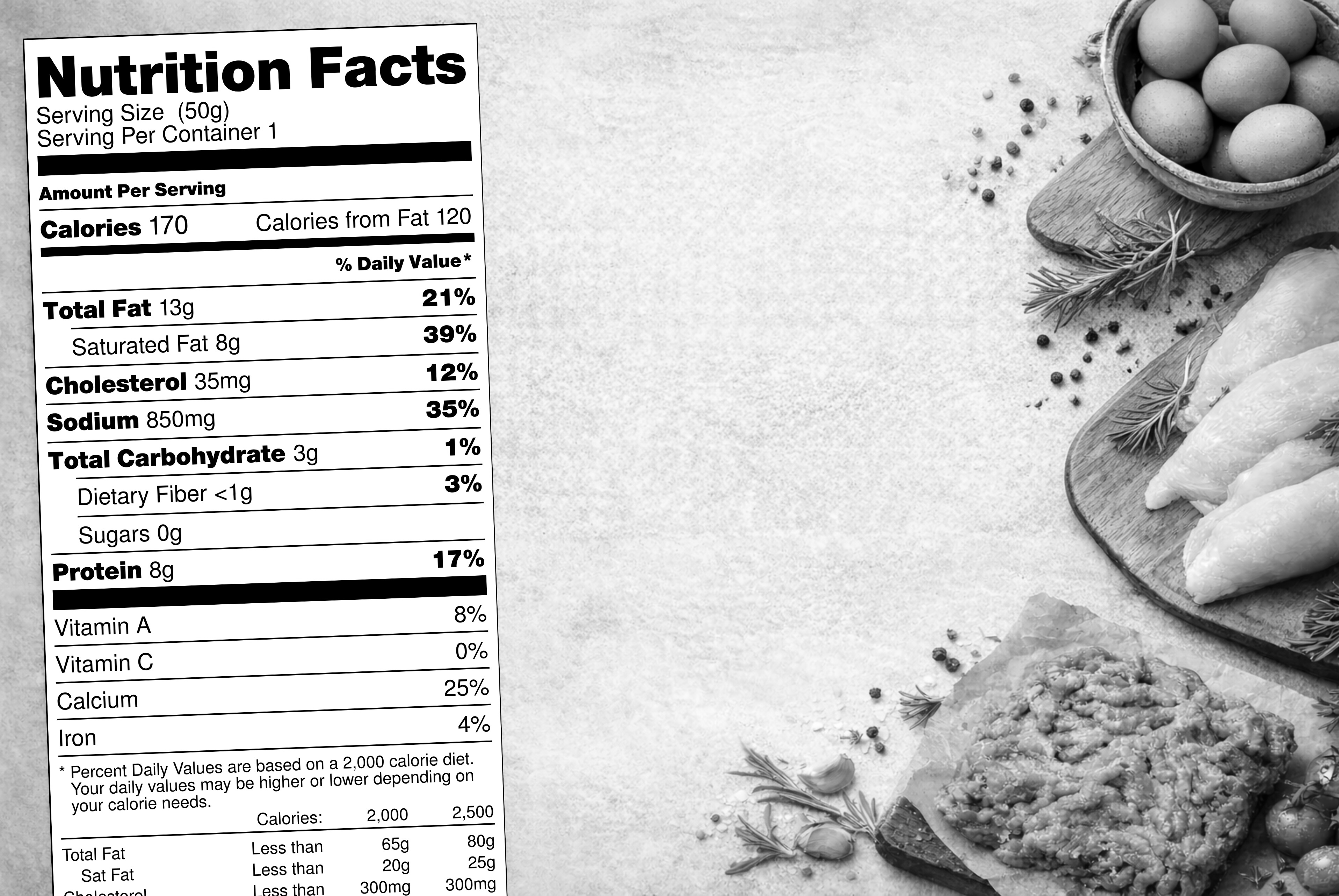
Small Business Exemptions
Specific business qualifications may make you exempt from FDA labeling requirements. These exemptions are listed under Subpart A 101.9 of Title 21. The most common business exemptions are outlined below.
With this said, most brands prefer to ensure their packaging is compliant from the start. As you consider the costs associated with hiring a designer to create your packaging, most brands find that it’s worthwhile to do it all correctly from the start to avoid having to pay for a designer a second time in the future.
Exemption Scenario #1: You’re a business making sales to consumers or retailers and (1) conduct no more than $500K in annual gross sales of all products OR (2) conduct no more than $50K in annual gross sales of food products.
In this scenario, you’re exempt from labeling; however, you’re still prohibited from making any nutrition claims on the product label or in how you advertise your product(s).
Exemption Scenario #2: To qualify for a low volume exemption, you must be a business with fewer than 100 full-time employees and fewer than 100K units sold in the US in the preceding 12 months.
In this scenario, you’re exempt from food labeling; however, you’re still prohibited from making any nutrition or health claims on the product label or in how you advertise your product(s).
Exemption Scenario #3: Your product identifies as one of the items listed below.
- Raw fruit
- Vegetable
- Fish
- Dietary Supplement (regulated under §101.36)
- Certain egg cartons
- Infant Formula and foods for children up to 4 yrs of age (modified requirements apply)
- Foods that contain insignificant amounts of all nutrients required to be in a nutrition panel (i.e., coffee beans, tea leaves, spices, flavor extracts, food colors,)
- Packaged single-ingredient meat products that are FDA-regulated (i.e., deer, bison, rabbit, quail, wild turkey, ostrich)
- Foods in small packages that have a total surface area of <12 sq inches
- Foods served or delivered for immediate consumption
- Food that is served in bulk containers at a retail establishment. The retail establishment must include the ingredients listed on a card or sign, if not on the bulk container itself.
- Foods that are prepared inside a retail establishment and only sold in that establishment (i.e., foods processed and sold onsite by independent delis, bakeries, or salad bars)
- Ingredients that are added to a food for an effect in processing but are present in the finished product at insignificant levels.
- Some products that are being transported to another facility where they will be processed, packed, or labeled.
Not excempt? Contact us to get started with ENTR.




